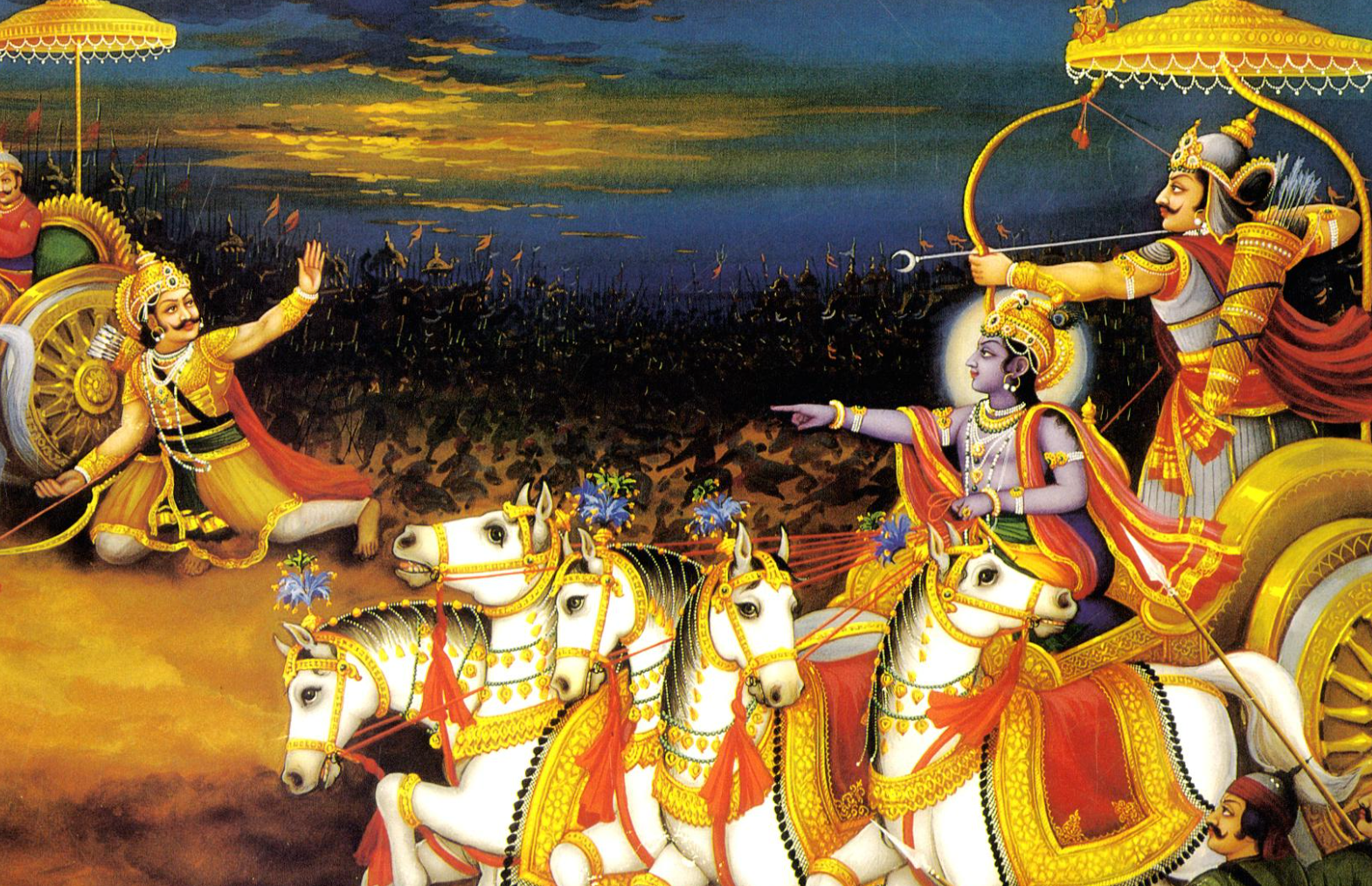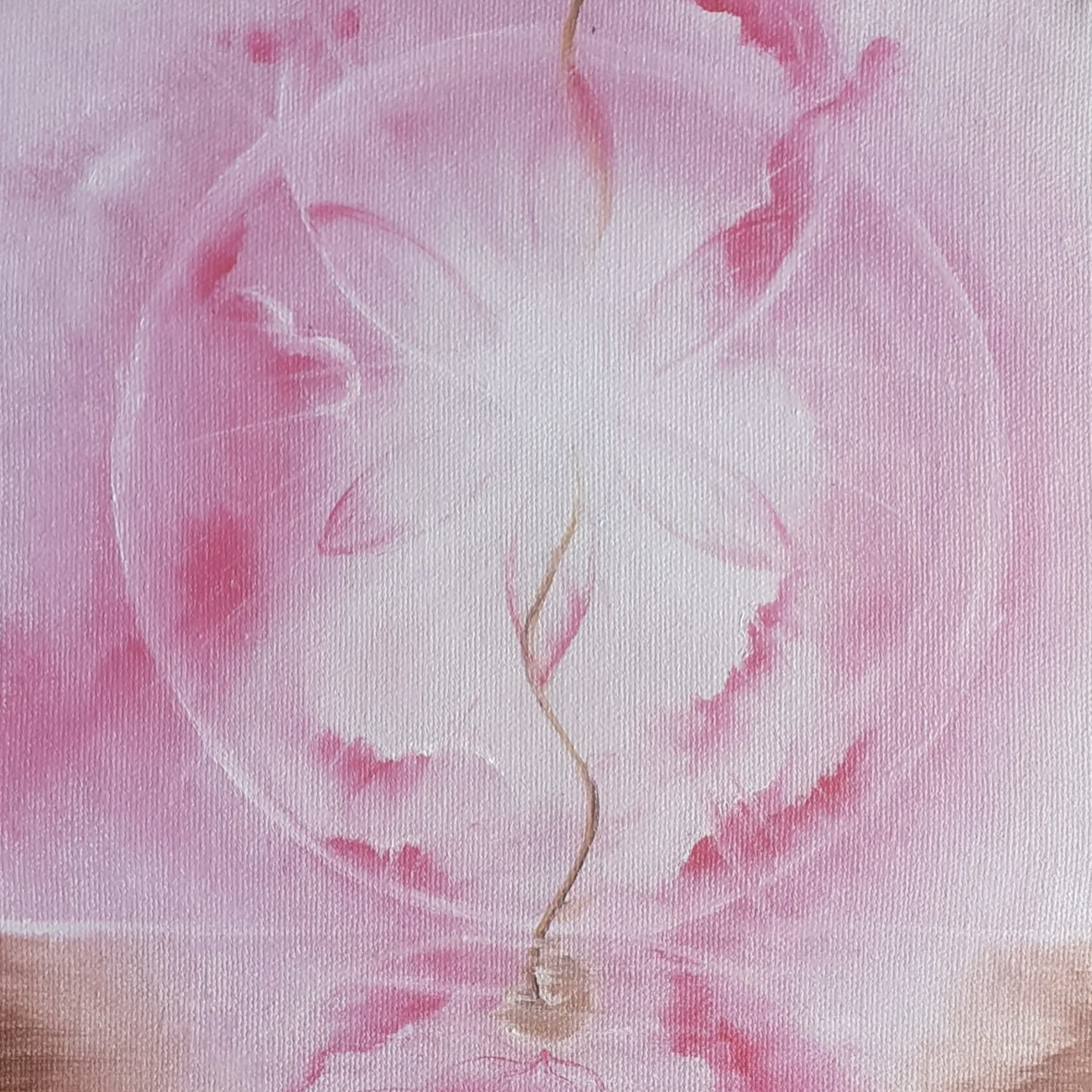Turning Point - Contentment
In countless pursuits of life people often seek fleeting mental and physical pleasures in the form of "Sukha".
Pleasure acts as a powerful motivator in the cycle of life, which leads you to take definitive actions in the hope of finding happiness through various goals that our society has established in the modern days - such as good education, jobs, marriage, social ambitions and worldly achievements. Happiness derived from these things are sweet but they can be disrupted swiftly. We shrug off saying this is just a temporary bump and look forward to finding a more stable happiness from the same sources. This endless chase for happiness that we are unable to catch can lead to a constant struggle, leaving us wondering what exactly we are seeking. Have you not experienced moments of frustration, confusion and emptiness while caught in the race of life?
Even those who engage in spiritual practices such as yoga and meditation, seeking inner peace, balance, and self-discovery, may still find themselves grappling with the same feelings after years of practice. They too are drawn towards fleeting pleasures and are caught in the same cycles of “sukha and dukha”
Why does the “sukha and dukha” cycle persist?
This cycle persists as long as we don't upgrade our definition of pleasure, as long as it is sought in the transient and impermanent aspects of life, we are bound to the same cycle.
People who seek spiritual answers to break this cycle may be asked to leave the worldly desires; desires are the root cause for suffering. While this may be the highest truth of great value, it also in some way overlooks the significance of our daily lives. It does not account for the different stages of spiritual evolution of seekers, not all are crafted for leaving desires in this lifetime.
And more so, pursuing modern education, jobs, marriage and worldly desires such as seeking recognition, self-worth, entertainment and comfort - are all part of the intricate tapestry of life, some of which are just unstoppable cascading events, we are not even aware if we desire them.
As long as these pursuits do not harm others or involve unethical methods, they serve a purpose in our lives. It is natural for people to ask for blessings of longevity, health, wealth, family, welfare, success, and fame. These desires and aspirations have meaning and purpose in this world, as they contribute to our well-being and ability to sustain ourselves with the pleasures and pains that are churned out of the interactions that manifest in these transactions. How can they be separated from the lives we live?
We can break this cycle only by elevating our understanding of pleasures.
What does it really mean to elevate our understanding of pleasure? When we act, it is natural for us to feel accountable for the outcomes, as our awareness of the limited self is rooted in a sense of "doership". Engaging in transactions is a natural part of our interaction with the world. Everything is personal here, it's about the limited identities we have ascribed upon our nameless continuity and this is in accordance with the nature of things here. Sensory gratification is a certain truth we live. All we need to do at this stage of our existence is to switch from Sukha mode to the mode of practicing Santosha ( Contentment).
Look for satisfaction in your efforts and in offering your best ( your maximum potential) instead of the effect of the outcome on you. Outcome of actions will certainly have an effect on you, but your pleasure and satisfaction will be derived from and rooted deep within yourself.
Contentment is that path which leads you back to the source, it is the antidote for greed. You stop striving for things that are not your real needs. You stop struggling and worrying about things that are absolutely out of reach. You may often ruin your own satisfaction in life by comparing yourself with others in terms of skills, possessions, character and achievements. Contentment secures the satisfaction you get when you do your best. Contentment comes when you count your blessings, it comes by being grateful for all that is given and by accepting all that is taken. It is surrendering to a certain higher course that guides the little stream of our lives.
Sri Krishna says in Gita,
yat karosi yad asnasi yaj juhosi dadasi yat
yat tapasyasi kaunteya tat kurusva mad-arpanam
यत्करोषि यदश्नासि यज्जुहोषि ददासि यत् |
यत्तपस्यसि कौन्तेय तत्कुरुष्व मदर्पणम् || 9.27
Whatever you “do”, whatever you “eat”, whatever are your “ritualistic duties”, whatever you “give” ( time, effort, money) and whatever “austerities you perform”. Do all of this with the intent of making an offering to the Lord of life.
You see, all these things are our engagements, things we do with body, mind, senses, and intellect, in accordance with one’s individual nature, all this should be offered to me. What does this mean? It means that we must not do these things for our own pleasure, instead we do it in such a way that the lord is pleased (pleasing lord means doing it the right way) and then we are content that we have tried our best to walk the path in our daily life and we have pleased the lord of life within.
In the very next verse he says,
shubhasubha-phalair evam moksyase karma-bandhanaih
Sannyasa-yoga-yuktatma vimukto mam upaisyasi
शुभाशुभफलैरेवं मोक्ष्यसे कर्मबन्धनै: |
संन्यासयोगयुक्तात्मा विमुक्तो मामुपैष्यसि || 9.28
Anyone who dedicates all his/her work to the lord of life will be freed from the bondage of good and bad results.
If you renounce seeking pleasures selfishly for yourself and live such that you give delight to your lord then you surely are blessed with the potential of reaching the highest delights even while in this body.
Do not mistake contentment for stagnation, settling for mediocrity or turning blind eye to problems and injustice of any kind, this will only make you indifferent, not content.
When we upgrade from Sukha to Santosha we need to lead a positive and ethical life, to earn through honorable means, and to fulfil legitimate desires in moderation. Always trying to be aligned with the source, always double checking if our actions will please the lord of life.
The aim is to attain contentment in our worldly existence. This is very important because higher spiritual aspirations of profound implications extend beyond contentment in the material realm. It is only when we have reached a point of saturation or contentment in our worldly pursuits that we can begin to take steps towards total liberation.
Sometimes, adverse circumstances and challenges in life drive us to seek something beyond the ordinary. Spiritual calling and detachment or quick fixes may attract us during such times, but often, this attraction fades when favorable circumstances return. Difficulties and adversities serve as catalysts primarily for those who have surrendered to the flow of life and stand on the verge of transformation.
For those who are simply struggling through difficulties, the aim should be to maintain contentment and strive for positive outcomes.
Efforts should be to reach our maximum potential while we are rooted in contentment. Every action is performed to the best of your knowledge and efforts as an offering to the Lord of life and you accept every outcome as it is. You go through pleasures and pains with humbleness and surrender.
As we traverse through favorable and adverse situations, accepting life as it unfolds and recognising that everything originates from the source, a natural sense of contentment begins to develop over the course of many lifetimes. Like a rock worn smooth by the currents of water, we too become polished and emerge with a radiance and contentment, ready to shine when illuminated by the light. This marks the spiritual turning point in our journey. Once this turn is taken, there is no looking back. The path opens up to channels of total transformation.
A person who is content can progress to the higher realm of pleasure, known as "Ananda", which connects us with our innermost self. This elevation leads to an exalted state, characterised by a profound love, the ability to remain balanced, and a discerning eye to perceive beauty even in places where it may not be apparent to the ordinary eye. Such "Ananda" reflects the eternal truth ("satya"), which is inherently auspicious and pure ("shiva"), and captivatingly beautiful ("Sundara") - “Satyam Shivam Sundaram”.
Beyond "Ananda" lies the supreme state of "Paramananda", an indescribable joy and eternal bliss that transcends language. It is an experience that can only be known in the state of non-duality, where there is an inseparable connection with the source. This represents the very essence of the source, bringing the journey to a full circle. Our pursuit of fleeting pleasures is merely a reflection of the soul's longing for ultimate joy. On the inward path, we must recognise this fundamental intention and empower ourselves to progress from "sukha" to "santosha", and from there to "ananda" and "paramananda".
![]()









